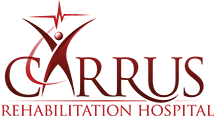
Muscular dystrophy is a chronic condition that causes progressive atrophy and weakness of key muscle groups in the body. While genetic in origin and progressive in nature, muscular dystrophy can be managed through medications, therapies, and persistence on the part of patients and their families.
Here’s more on muscular dystrophy and available treatment options.
Symptoms of Muscular Dystrophy
For many people, muscular dystrophy begins in childhood, while other patients develop symptoms as young adults. Onset can be sudden or gradually noticed, and much depends on the kind of muscular dystrophy and the co-existing lifestyle or health issues.
Of the two most common kinds of muscular dystrophy, Duchenne muscular dystrophy comes on most noticeably and quickly. It affects more males than females and usually begins in childhood.
The other common type, Becker muscular dystrophy, while similar in symptoms, starts later, more slowly, and produces milder disabilities. Both types of muscular dystrophy respond to a customized treatment plan that is modified occasionally, as needed.
Symptoms of muscular dystrophy include:
- Progressive muscular weakness and atrophy
- Poor gait (waddling)
- Walking on tip-toes
- Falls and clumsiness
- Struggling to get up from a seated position or from lying down
- Muscular stiffness, pain, and eventual contractures (shortening of muscles and connective tissues)
- Poor overall growth
- Learning disabilities
- Impaired breathing
- Scoliosis and other curvatures and structural abnormalities of the spine
- Feeding and swallowing difficulties
- Cardiac problems (enlarged heart and arrhythmias) due to weakened heart muscle
- Big calf muscles
- Loose or stiff joints, such as the hips and knees
Sadly, these symptoms can produce acute medical problems, in addition to long-term disabilities. Acute issues include pneumonia and other respiratory infections, choking, and in the case of pregnant women, miscarriage and premature birth.
Treatment Options For Muscular Dystrophy
The overall goals of muscular dystrophy treatment are symptom reduction and slower progression of the disease. While overall function and longevity vary from case to case, many people with muscular dystrophy learn to adapt well to their condition, respond well to medications and targeted therapies, and enjoy fulfilling lives. Most experts agree that support from families and from other people who have muscular dystrophy is key to successful treatment.
Today’s most common treatments include pharmaceuticals, such as prednisone or deflazacort, which are corticosteroids that reduce inflammation and slow disease progression. Beta-blockers assist with heart issues.
Other treatments include therapy to improve walking and muscular strength, balance, and coordination. Most people with muscular dystrophy undergo physical and occupational therapies. Speech therapists and respiratory therapists can assist with eating, swallowing, and speaking deficits, as well as lung function and breathing exercises.
Finally, frequent medical care and support are important for those with muscular dystrophy. Primary care physicians help individuals:
- Maintain a healthy body weight
- Stop detrimental lifestyle habits, such as smoking
- Get routine exercise and maintain as much physical activity as possible
- Monitor other aspects of overall health, such as blood pressure, cholesterol, and glucose levels
- Receive routine vaccines, such as flu and pneumonia shots
Muscular Dystrophy Treatment at Carrus Health
If you have muscular dystrophy or another chronic condition that needs medical care, Carrus Health is here for you. Our expert physicians have a wealth of experience diagnosing and treating a multitude of health problems.
Our eight locations serve people in Sherman, TX, and the surrounding communities, including southern Oklahoma. We provide comprehensive medical care for both chronic and acute diseases, conditions, and injuries.
To learn more about how our compassionate, multi-specialty team and facilities can help you or a loved one cope with muscular dystrophy, call us for a consultation: (903) 870-2600. We will put you in touch with the right professionals and get you on the path to a healthier, better-functioning life.

